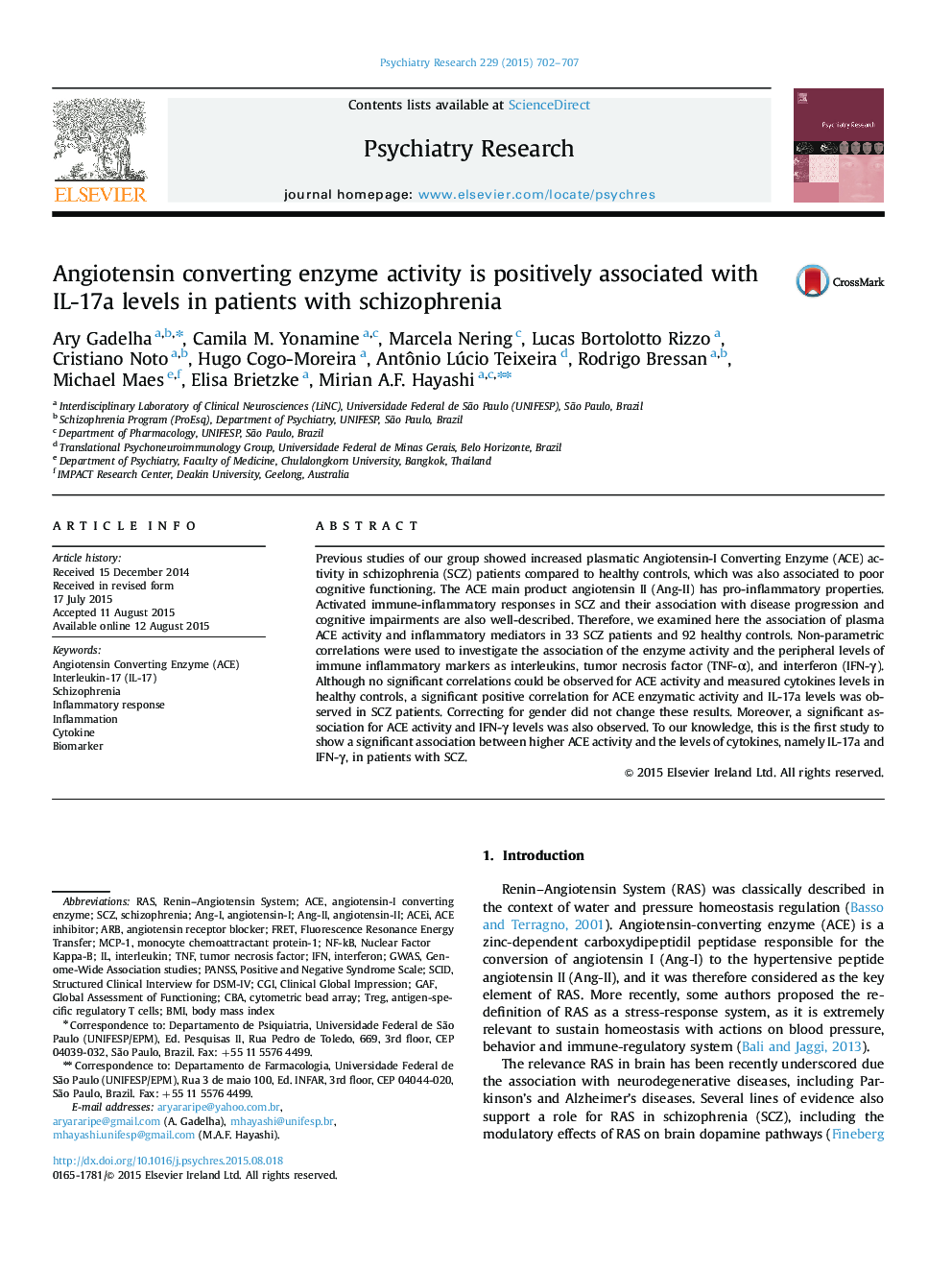| Article ID | Journal | Published Year | Pages | File Type |
|---|---|---|---|---|
| 333370 | Psychiatry Research | 2015 | 6 Pages |
•ACE enzymatic levels are associated to inflammatory mediators in schizophrenia.•No significant correlations were found for ACE activity and measured cytokines levels in healthy controls.•A significant positive correlation for ACE enzymatic activity and IL-17a levels was observed in schizophrenia patients.•Significant association for ACE activity and IFN-γ levels was also observed.•Correcting for gender did not change these results.
Previous studies of our group showed increased plasmatic Angiotensin-I Converting Enzyme (ACE) activity in schizophrenia (SCZ) patients compared to healthy controls, which was also associated to poor cognitive functioning. The ACE main product angiotensin II (Ang-II) has pro-inflammatory properties. Activated immune-inflammatory responses in SCZ and their association with disease progression and cognitive impairments are also well-described. Therefore, we examined here the association of plasma ACE activity and inflammatory mediators in 33 SCZ patients and 92 healthy controls. Non-parametric correlations were used to investigate the association of the enzyme activity and the peripheral levels of immune inflammatory markers as interleukins, tumor necrosis factor (TNF-α), and interferon (IFN-γ). Although no significant correlations could be observed for ACE activity and measured cytokines levels in healthy controls, a significant positive correlation for ACE enzymatic activity and IL-17a levels was observed in SCZ patients. Correcting for gender did not change these results. Moreover, a significant association for ACE activity and IFN-γ levels was also observed. To our knowledge, this is the first study to show a significant association between higher ACE activity and the levels of cytokines, namely IL-17a and IFN-γ, in patients with SCZ.
